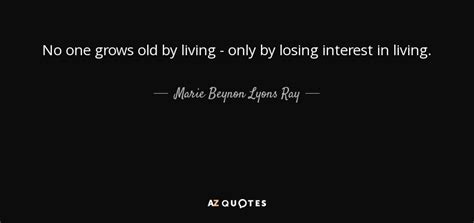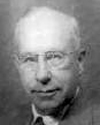A Quote by Heinz Hopf
Indecision is debilitating; it feeds upon itself; it is, one might almost say, habit-forming. Not only that, but it is contagious; it transmits itself to others. . . . Business is dependent upon action. It cannot go forward by hesitation. Those in executive positions must fortify themselves with facts and accept responsibility for decisions based upon them. Often greater risk is involved in postponement than in making a wrong decision.
Quote Topics
Accept
Action
Almost
Based
Business
Cannot
Contagious
Debilitating
Decision
Decisions
Dependent
Executive
Facts
Feeds
Forming
Fortify
Forward
Go
Greater
Habit
Hesitation
Indecision
Involved
Itself
Making
Might
Must
Often
Only
Others
Positions
Postponement
Responsibility
Risk
Say
Than
Them
Themselves
Those
Wrong
Wrong Decision
Related Quotes
Facts are neutral until human beings add their own meaning to those facts. People make their decisions based on what the facts mean to them, not on the facts themselves. The meaning they add to facts depends on their current story … facts are not terribly useful to influencing others. People don’t need new facts—they need a new story.
In their zeal for particular kinds of decisions to be made, those with the vision of the anointed seldom consider the nature of the: process: by which decisions are made. Often what they propose amounts to third-party decision making by people who pay no cost for being wrong-surely one of the least promising ways of reaching decisions satisfactory to those who must live with the consequences.
Facts are certainly the solid and true foundation of all sectors of nature study ... Reasoning must never find itself contradicting definite facts; but reasoning must allow us to distinguish, among facts that have been reported, those that we can fully believe, those that are questionable, and those that are false. It will not allow us to lend faith to those that are directly contrary to others whose certainty is known to us; it will not allow us to accept as true those that fly in the face of unquestionable principles.
The determination of the value of an item must not be based on its price, but rather on the utility it yields. The price of the item is dependent only on the thing itself and is equal for everyone; the utility, however, is dependent on the particular circumstances of the person making the estimate. Thus there is no doubt that a gain of one thousand ducats is more significant to a pauper than to a rich man though both gain the same amount.
Actually, I can't take credit for any of my decisions. I noticed one day that all my decisions were making themselves, and always at the right time. I haven't had to make one decision since then. They are always made for me, and they come from the wisdom that is in us all. I trust that wisdom completely. That trust itself was a decision made for me as inquiry cleared my mind. No decision, no fear.
Conclusions which are merely verbal cannot bear fruit, only those do which are based on demonstrated fact. For affirmation and talk are deceptive and treacherous. Wherefore one must hold fast to facts in generalizations also, and occupy oneself with facts persistently, if one is to acquire that ready and infallible habit which we call "the art of medicine".
People are trying to build a society where they can talk across the aisle so to speak, and have civil discourse. At the same time we're trying to inform ourselves about what's really true so that we can make evidence based decisions that is better than superstition or rumor. But the fact is that people who use evidence based decision making have much better life outcomes, greater life satisfaction, they live longer, they make better personal and medical decisions, better financial decisions. But parallel to that is you can't reason somebody out of a position they didn't reason themselves into.
Taking responsibility nurtures self-confidence, and self-confidence can help you to be a more interesting and attractive person. And best of all, the more you believe in yourself, the more power you possess to attract your good. . . . Those who speak constantly of their right to freedom must understand that an irresponsible act does not bring greater freedom but only greater bondage to the action. One law of life says, "If we are to enjoy freedom, we must accept responsibility." A great awareness is expressed in this statement.
Pour the bulk of your time into action, not deciding. The state of indecision is a major time waster. Don't spend more than 60 seconds in that state if you can avoid it. Make a firm, immediate decision, and move from uncertainty to certainty to action. Let the world tell you when you're wrong, and you'll soon build enough experience to make accurate, intelligent decisions.
…There are times when something is asked of us, and we find we must do it. There is no calculation involved, no measure of the necessity of the thing itself, the action that must be performed. There is simply an acknowledgment that we will do the thing in question, and then the thing is done, often at considerable personal cost. " "What goes into these decisions? What tiny factors, invisible, in the jutting edges of personality and circumstance, contribute to this inevitability?






































